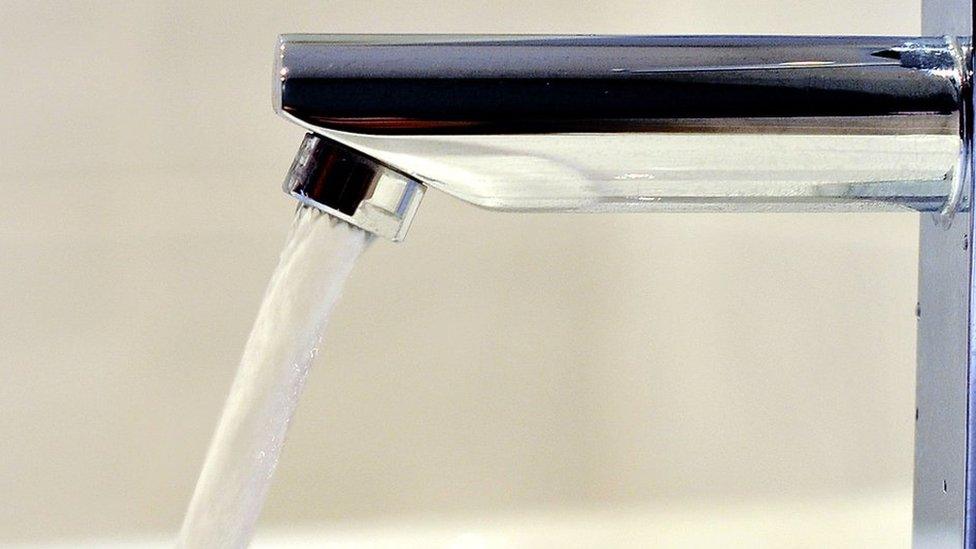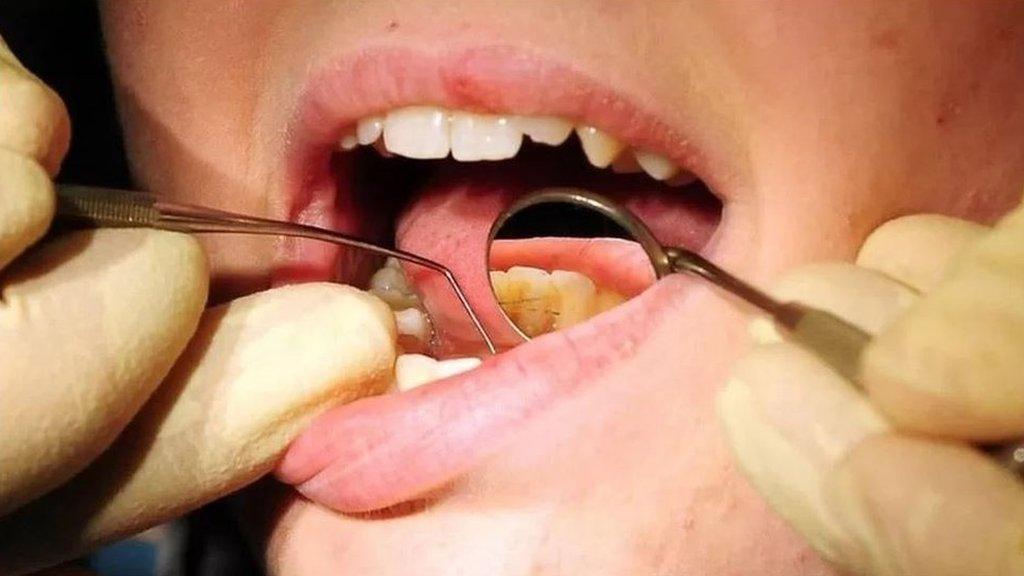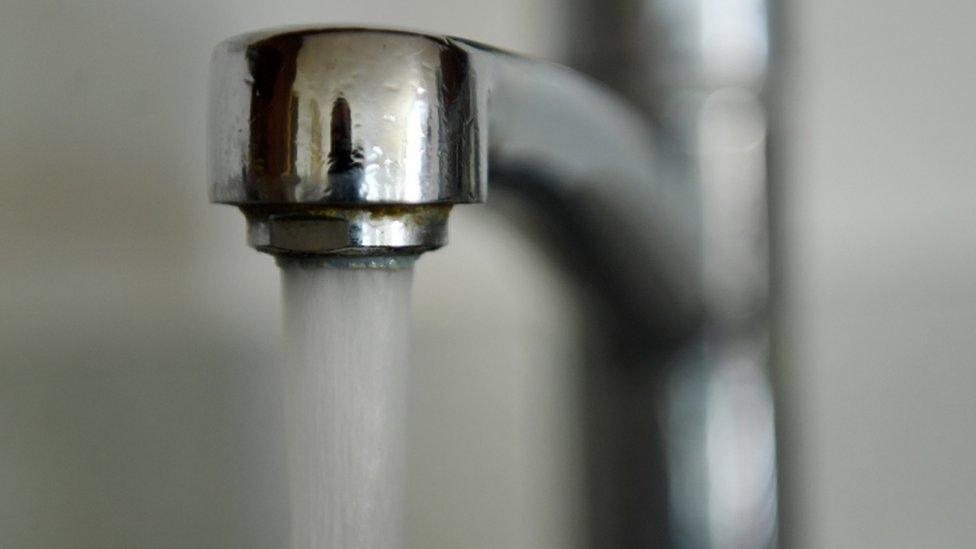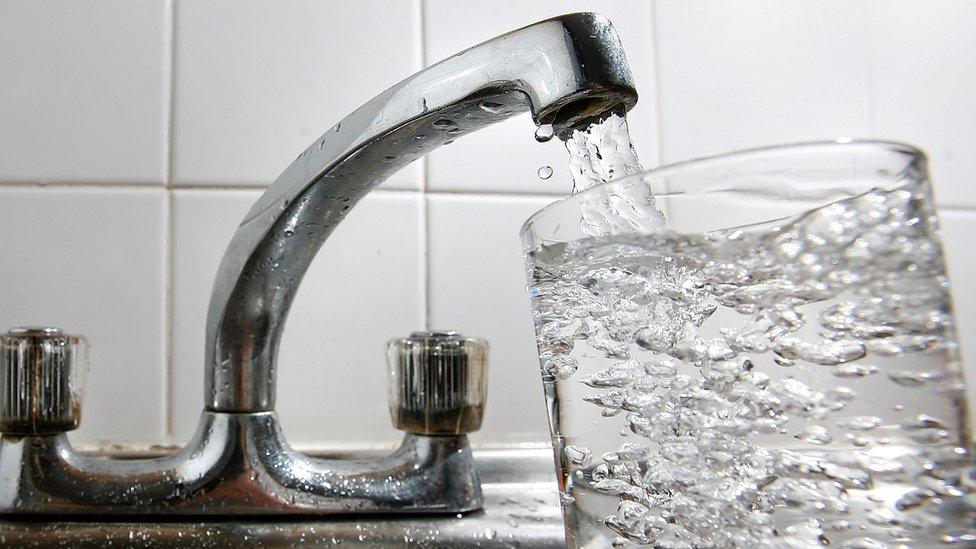Fluoride proposal for Leicester water to try to tackle tooth decay
- Published

No fluoride is currently added to the city's water, though small levels are naturally present in it
Proposals are being drawn up to fluoridate Leicester's water supply to try to reduce levels of tooth decay in the city.
Leicester City Council said it intended to write to the government to suggest the mineral be added to drinking water.
It said it believed the move would significantly improve people's dental health.
The Department of Health and Social Care (DHSC) said it wanted to widen out water fluoridation across the country.
Rob Howard, the council's director of public health, said fluoride was already naturally present in drinking water in the city but that topping up the levels would improve people's dental health.
"We think it will really help prevent tooth decay, particularly among children," Mr Howard said.
"Latest figures show 37.8% of five-year-olds in the city have at least one decayed, missing, or filled tooth.
"In Birmingham, which is a similar comparator, they have been adding fluoride to water for years, and the figure is 23.8%.
"We feel we would see a real improvement, which would reduce pain, missed school days, sleeping difficulties, and speech development in children."
"We are talking about adding a small amount of fluoride, about one part per million, to the water," Mr Howard added.
"But it would have a significant benefit."

Dr Justin Jannati said fluoridisation would help count the impact of sugary foods
In January, public health leaders in Nottingham and Nottinghamshire wrote to Health Secretary Victoria Atkins, asking her to consider the fluoridation of the water supply, and Leicester is now following suit.
Mr Howard added: "It's a long process - it takes at least two to five years - and if the secretary of state thinks it is feasible, there will be a full consultation before a decision is made."
Dentist Justin Jannati said he had opened his practice, the City Dental Practice in Leicester city centre, on Saturdays to treat children.
He said: "We are in a dental crisis. On a Saturday, we see 80 or 90 children, and about half of them need a filling.
"This is a matter of poor oral hygiene and education and poor diet which have vast amounts of sugar.
"If we can't reduce the sugar intake, we need to take other measures, and fluoridisation ensures the mineralisation and strengthening of teeth."
The DHSC said 10% of England was already covered by water fluoridation schemes.
A DHSC spokesperson added: "Water fluoridation is a safe and effective measure to help improve our nation's oral health, tackle disparities, and reduce dental caries and tooth extractions among children.
"We want more of the country to benefit from water fluoridation, and recently transferred responsibilities for fluoridation schemes from local authorities to central government, making it simpler to expand schemes, subject to public consultation."

Follow BBC East Midlands on Facebook, external, on X, external, or on Instagram, external. Send your story ideas to eastmidsnews@bbc.co.uk, external or via WhatsApp, external on 0808 100 2210.
- Published21 September 2023

- Published6 April 2022

- Published21 October 2016
